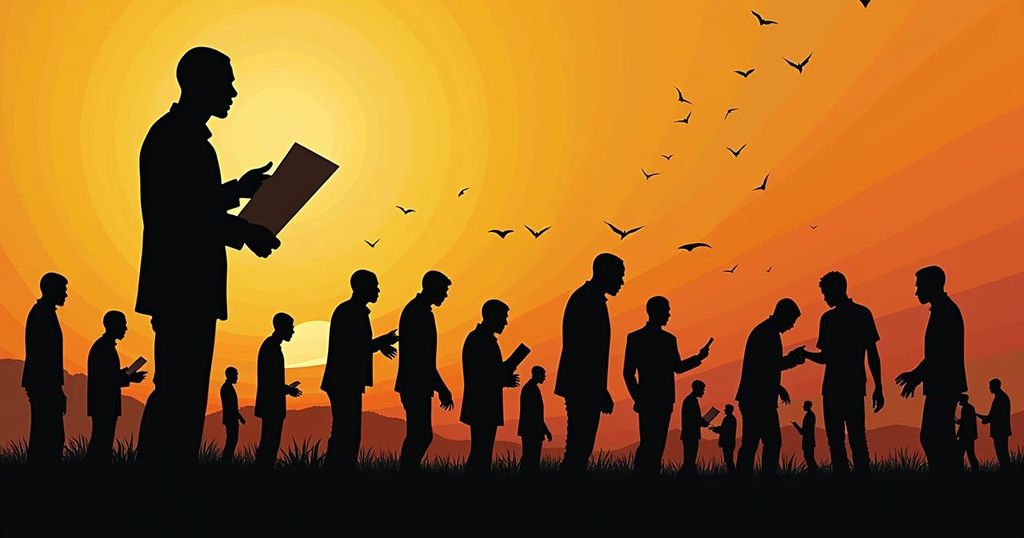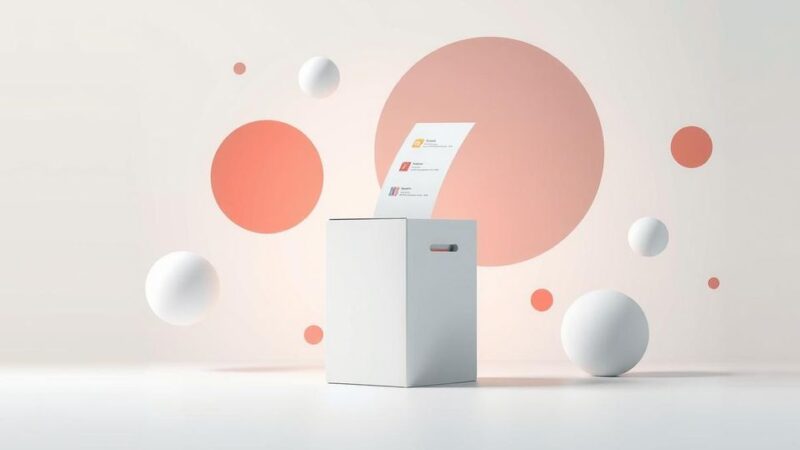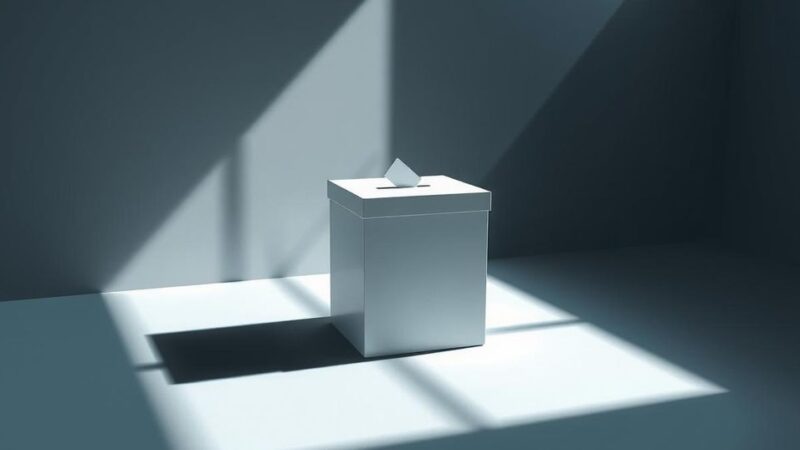Mozambique prepares for an important presidential election on Wednesday to select a successor to President Filipe Nyusi. Approximately 17 million registered voters will choose from several candidates, with the ruling Frelimo party expected to maintain its dominance despite challenges such as a jihadist insurgency and food shortages. Recent local elections faced allegations of fraud, but concerns appear diminished this time around. Key candidates include David Chapo from Frelimo and Venacio Mondlane, an independent, alongside others addressing Mozambique’s pressing issues.
Mozambicans are poised to participate significantly in their upcoming presidential election on Wednesday, set to select a successor to President Filipe Nyusi, who has reached the end of his two-term limit. Approximately 17 million voters are registered in a nation of 31 million, tasked with electing not only the president but also 250 parliamentary members and representatives for provincial assemblies. The ruling party, the Front for the Liberation of Mozambique (Frelimo), is predicted to retain its grip on power, although multiple candidates are vying for change amidst ongoing challenges, including a prolonged jihadist insurgency in the north and climate vulnerabilities along the extensive Indian Ocean coastline. The turmoil from the insurgent attacks has displaced over 1.3 million people, with many fleeing their residences, while millions are also facing dire food shortages, exacerbated by drought conditions. In the previous year, local elections prompted allegations of vote manipulation and civil unrest in the capital, Maputo, although expectations for this election are comparatively subdued. Frelimo has nominated David Chapo, a former governor of Inhambane province and a significant figure in Mozambique’s tourism sector, as their presidential candidate. His principal challenger is Venacio Mondlane, a 50-year-old banker and forestry engineer running independently with the slogan “Save Mozambique, this country’s ours.” Mondlane rallies substantial support and is backed by the Optimistic Party for the Development of Mozambique, which formed from dissent within Frelimo. The Democratic Movement of Mozambique has placed its faith in Lutero Simango, whose policies attract the youth due to their focus on reducing inequality and improving job prospects. Ossufo Momade, representing the Renamo party, continues the legacy of his predecessor, Afonso Dhlakama, after taking over leadership following Dhlakama’s death in 2018. The country has been combating an insurgency claimed by an Islamic State-linked group in Cabo Delgado, which has led to considerable violence, including beheadings. As reported by the United Nations, around 600,000 of the displaced have returned to their communities, confronting the repercussions of destroyed infrastructure, including homes and essential services. Candidates this election promise to address developmental crisis, notably the cessation of a significant gas project by TotalEnergies due to the insurgency’s impacts. Mozambique is also grappling with staggering unemployment rates and heightened food insecurity, as projected by the U.N. World Food Program, which estimates that 1.3 million individuals face severe hunger. Furthermore, the ruling Frelimo party has been marred by corruption controversies, including the notorious “tuna bond” scandal that resulted in substantial financial mismanagement and loss of international financial support from entities such as the International Monetary Fund. Voting is scheduled for one day, with immediate counting to follow. Partial results will be disclosed as they become available, with official outcomes published by the National Election Commission after 15 days, subject to validation by the Constitutional Council.
The forthcoming presidential election in Mozambique marks a crucial moment in the nation’s political landscape as President Filipe Nyusi concludes his terms in office. With the ruling party, Frelimo, having maintained power since the nation’s independence in 1975, the election could present significant opportunities for opposition parties amid ongoing socio-economic challenges and crises spurred by a jihadist insurgency and environmental issues. Over the years, the concerns surrounding electoral integrity—highlighted by reports of electoral fraud and subsequent civil unrest—underscore the importance of this electoral process in shaping Mozambique’s future. The instability, reflected in the displacement of approximately 1.3 million citizens due to violence, alongside severe food shortages impacting millions, has placed immense pressure on the upcoming elections, drawing attention from both domestic and international observers. The candidates representing diverse political ideologies attempt to address critical issues affecting the populace, notably the dire economic conditions and the implications of corruption within the ruling party.
In summary, the Mozambican presidential election is anticipated to attract significant voter participation amid pressing social and economic challenges. As the nation confronts an insurgency that has displaced many and ongoing issues of corruption, candidates are expected to campaign vigorously on platforms addressing development and stability. With Frelimo’s long-standing rule in question, the election offers a pivotal moment for change influenced by the aspirations of the electorate and the current candidates’ commitments to tackling pressing challenges.
Original Source: abcnews.go.com






